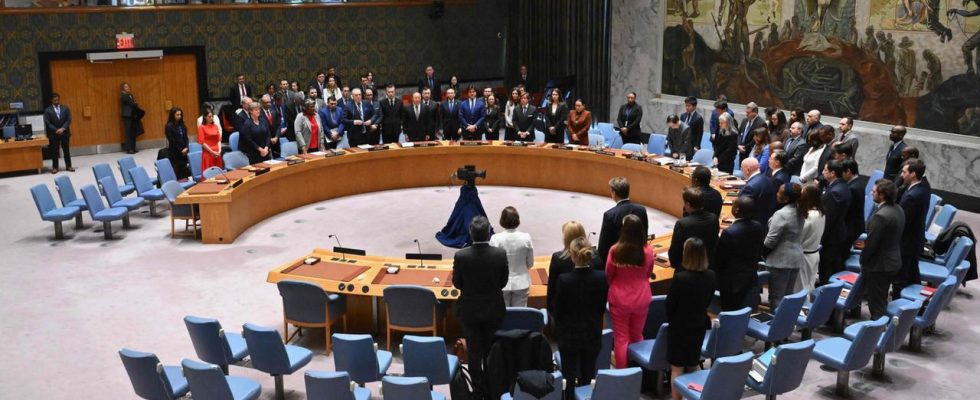For the first time since the start of the war, the UN Security Council is calling for an “immediate ceasefire” in the Gaza Strip. This was made possible by the abstention of the USA. This increases international pressure on Israel and the terrorist militia Hamas.
Almost six months after the start of the war, the UN Security Council called for an “immediate ceasefire” in the Gaza Strip for the first time. In addition, the most powerful body in the United Nations is demanding the immediate and unconditional release of all hostages held by the militant Islamist terrorist militia Hamas.
The vote was made possible because, in contrast to previous votes on the demand for an immediate ceasefire, the USA did not veto this time, but abstained from voting. The remaining 14 council members voted for the resolution. The resolution was proposed by the 10 elected members of the committee.
The resolution calls for a ceasefire for the duration of the Islamic fasting month of Ramadan, which lasts about two weeks. It also emphasizes the need to allow more humanitarian aid into the Gaza Strip and to strengthen the protection of civilians in the Palestinian territory.
Pressure on Israel and Hamas is increasing
The decision, which is binding under international law, further increases international pressure on the conflict parties Israel and Hamas. However, it is questionable whether or to what extent the resolution will have any influence on decisions made by the Israeli government of Prime Minister Benjamin Netanyahu or Hamas regarding the further course of the war.
Immediately before the vote, Netanyahu threatened that he would cancel the planned trip of two of his envoys to Washington at short notice if the USA did not use its veto power to prevent the resolution.
U-turn by the USA
Efforts to get the UN Security Council to call for a ceasefire have so far failed, mainly due to resistance from the veto power, the USA. Since the war began in October last year, Washington, Israel’s closest ally, has opposed a ceasefire and vetoed resolutions three times. At best, US representatives called for shorter “ceasefires”.
On Friday, Washington made a U-turn and called for the first time in a resolution “an immediate and permanent ceasefire” in the Gaza war. But Russia and China vetoed it. The draft resolution did not go far enough for Moscow and Beijing – in their eyes, the text was, among other things, too pro-Israel and not sufficiently binding in places.
In view of the increasing number of civilian casualties and the threat of famine in parts of the sealed-off coastal strip, the USA has recently increased the pressure on Israel. US President Joe Biden has become increasingly critical, for example with regard to Israel’s planned ground offensive in the city of Rafah in the south of the Gaza Strip.
Baerbock for talks in Cairo
Federal Foreign Minister Annalena Baerbock also spoke out again against an Israeli ground operation in Rafah during crisis talks in Egypt. “There cannot be a major offensive on Rafah,” said the Green politician at the airport in Cairo. “People cannot disappear into thin air.”
In the city on the border with Egypt, it is estimated that 1.5 million of the 2.2 million residents of the Gaza Strip are currently seeking shelter in a confined space from the fighting in other parts of the coastal area. Israeli Prime Minister Benjamin Netanyahu insists on an offensive in the city because the military suspects there are many Hamas members and leading figures there. The army had apparently drawn up plans to bring the civilians to safety, it was said.
Gray areas: Built-up areas in the Gaza Strip, hatching: Israeli army
In Cairo, Baerbock also spoke with her Egyptian counterpart Sameh Schukri about a ceasefire and the release of hostages against the backdrop of stalled negotiations between Israel and Hamas. In the evening, the Foreign Minister is expected in Ramallah for talks with her Palestinian colleague Riad al-Maliki and Palestinian President Mahmoud Abbas. The mediators USA, Egypt and Qatar have been trying to reach an agreement between Israel and Hamas for weeks.

